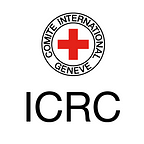“I’m eight years old. Ten months ago, my parents disappeared. Now my brothers and I are going back to our home town, Lubumbashi, to live with our uncle, our dad’s big brother.”
When their parents went missing, Edward* and his two little brothers were living in Dungu, near the border with South Sudan in northern Democratic Republic of the Congo (DRC).
Due to the conflict in the DRC, many children have become separated from their families. Every year, the ICRC reunites dozens of them with their loved ones. ICRC aircraft take to the skies multiple times per year: over several days, the planes criss-cross the country, covering thousands of miles to take the children home.
On 1 March 2016, an ICRC plane took off from Goma with seven children on board: Edward and his brothers and four girls from Shabunda (in South Kivu) and Kindu (in Maniema).
Next stop: Kamina (in Haut-Lomami province), and then on to Lubumbashi (in Haut-Katanga province).
During the flight, Edward starts telling his story.
“Dad disappeared on a Monday. He’d been sent into the bush to work that morning. When the other men came back, they told us that he and three others had disappeared. My brothers and I cried a lot that day.” The boys still had their mother, but the following Sunday she left to look for their father in the bush. She never came back.
A friend of the family took in the three boys and then turned them over to the Red Cross.
Edward continues, and even sings a song.
“My teacher taught me this song. I was in my third year of primary school in Dungu. When I get to Lubumbashi, I want to go back to school so one day I can work in a big organization and have a good salary and a better life.”
He takes an ICRC booklet from the seat pocket and gazes intently at the photos. He points at a picture of a family being reunited:
“The parents look really happy to have their child back.”
“I was really little when I left Lubumbashi with Mum and Dad. Today my brothers and I are going back without them. I think about my parents a lot but I’m happy to go live with my uncle. He raised my dad. He’ll take good care of us.”
In Kamina, the aircraft touched down on a red landing strip near the centre of town. The air is hot and the sun beats down from a blue sky.
Sixteen children climb aboard. They’d been conscripted by armed groups but had managed to escape. They too are impatient to see their families, though some are still a bit nervous and hesitant. “Only God can repay you,” they say as they board.
Akili * is among them. He tells his story:
“Our village was attacked by an armed group. They forced all the boys to go back into the bush with them. Life was very hard but we had no choice — we either obeyed or died. But I got away. I’m really lucky to get to go home to my parents. I’m so happy. I’m going to work in the fields like before to help my family.”
At the next stop — Lubumbashi — Edward gets off with the other children who’ve flown from Goma. Then three more children board to be taken back to Goma.
For all the children, these flights represent a fresh start. Some will have to overcome their harrowing experiences as conscripts in armed forces or armed groups. But all are hoping to fly to a better life.
* Names were changed
